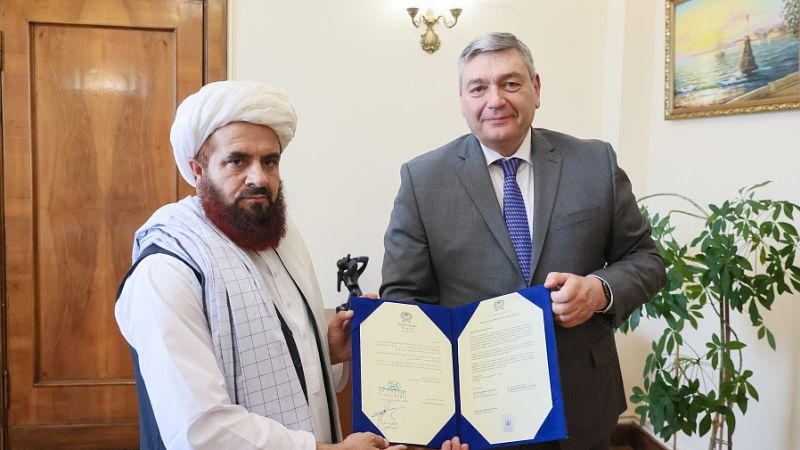Russia Officially Recognizes Taliban as Afghanistan's Government – A Major Shift in International Relations

Moscow, Russia – In a significant and potentially game-changing development for Afghanistan and international relations, Russia has officially recognized the Taliban government as the legitimate authority of Afghanistan. This marks the first formal recognition by any nation since the Taliban seized control of the country in August 2021, following the withdrawal of US and NATO forces.
The announcement, made on Thursday, detailed that Russia has accepted an ambassador from the Taliban, signifying a formal diplomatic relationship. This move comes amidst ongoing international debate and uncertainty surrounding the Taliban’s rule, particularly concerning human rights, women’s rights, and counter-terrorism efforts.
Why Russia's Recognition Matters
Russia's decision carries substantial weight for several reasons. Geographically, Russia shares a border with Afghanistan and has historically maintained interests in the region, including concerns about security and the potential for extremism to spill over. The recognition signals a pragmatic approach by Moscow, prioritizing stability and engagement over adhering to international condemnation of the Taliban.
“We have received the credentials of the new ambassador of the Islamic Emirate of Afghanistan,” stated Russian Foreign Ministry spokesperson Maria Zakharova. “This does not mean we are supporting the Taliban’s ideology, but rather acknowledging the current reality on the ground and seeking to engage constructively to ensure regional security.”
International Reactions & Concerns
The move has already drawn mixed reactions from the international community. Western nations, including the United States and European Union members, have expressed reservations, emphasizing the need for the Taliban to uphold human rights and form an inclusive government that represents all Afghans. Many countries continue to withhold formal recognition, citing concerns about the Taliban’s policies, particularly regarding women’s education and employment.
The United States State Department stated it was “monitoring the situation closely” and reiterated its call for the Taliban to respect the rights of all Afghans. The EU echoed these sentiments, emphasizing that recognition should be contingent on tangible progress in human rights and governance.
Implications for Afghanistan
For Afghanistan, Russia’s recognition could provide a crucial lifeline. It offers a pathway for diplomatic engagement, potentially unlocking economic assistance and trade opportunities. However, it also raises concerns about the potential for increased Russian influence in the country and the risk that other nations might follow suit, potentially normalizing the Taliban’s rule without sufficient pressure for reforms.
The Taliban welcomed the recognition, stating it was a “positive step” towards normalizing relations with the international community. They have repeatedly called on other countries to recognize their government and engage in dialogue.
Looking Ahead
Russia’s recognition of the Taliban government represents a complex and evolving situation. It highlights the shifting geopolitical landscape in Afghanistan and the challenges of navigating relations with the Taliban regime. Whether this move will pave the way for broader international acceptance remains to be seen, but it undoubtedly marks a significant turning point in Afghanistan’s post-2021 trajectory. The world will be watching closely to see how this recognition impacts regional stability and the future of the Afghan people.






